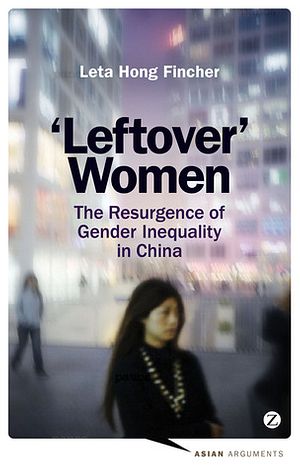The Diplomat’s Justin McDonnell talks with Leta Hong Fincher, author of “Leftover Women: The Resurgence of Gender Inequality in China,” about gender discrimination in China, the long-term consequences for the Chinese economy, and what the state can do to help solve the problem.
What are the origins of Shengnu (leftover women)?
The term shengnü was not widely used until 2007, when the All-China Women’s Federation defined “leftover” women to mean single women older than 27 and China’s Ministry of Education added the term to its official lexicon, according to the official, state-run Xinhua News Agency. Since then, the Chinese state media have aggressively promoted the term through articles, surveys, cartoons and editorials essentially insulting educated, urban women who are single, often referring to a “crisis” in growing numbers of unmarried, professional women who “cannot find a husband.”
How is the Chinese state stigmatizing single, educated women?
In China, gender-discriminatory norms are exacerbated by a one-party state intent on social engineering, with a massive propaganda apparatus that maintains a tight grip on information. So when the state media mobilize to push the message that women in their late-20s are “leftover,” like rotten food, and those messages have been repeated ad nauseum ever since 2007, even university-educated, young women may internalize that ideology because they don’t have sufficient access to alternative sources of information. The “leftover” women media campaign is also aimed at the parents and other older relatives of young women, so even if a young woman rejects the sexist media messages, she still comes under intense pressure from her parents and others to get married once she hits her mid-20s. Arranged marriages are supposed to be a thing of the past, but I see quite a lot of young women not thinking clearly and rushing into marriage with a man pushed on them by their relatives, just because they are afraid of winding up “leftover” in their late 20s or early 30s.
Discrimination against women persists despite the rapid economic growth. Is this a byproduct of a Confucian society that has traditionally favored men?
My research indicates that current levels of gender inequality are not just a byproduct of outdated Confucian principles. Gender norms on the whole are becoming more progressive among urban, educated women and men in their 20 and early 30s, many of whom really believe in gender equality. I argue that the residential real-estate boom following China’s privatization of housing has created stark new forms of gender inequality in wealth, because there is a close link between marriage and home-buying in China. Chinese consumers have very few places to invest their money, so most people invest it in a home, which is the most valuable family asset and worth much more than income alone. Since urban homes are so expensive, it is virtually impossible for a young person to buy a home on her own. But Chinese parents tend to buy homes for sons rather than daughters, most homes are still registered in men’s names (in spite of more women in recent years wanting to add their names to the deed) and women often transfer their assets to their husband or boyfriend to finance the purchase of a home registered in the man’s name alone, because they fall prey to overwhelming social and economic forces. Urban, educated women who are beginning to reject gender discriminatory norms are bombarded daily with media reports about “leftover” women, saying that women had better stop asserting their independence or they will never be able to find a husband. A complicated combination of factors has intertwined in recent years with the result that Chinese women have largely missed out on arguably the biggest accumulation of residential property wealth in history, worth over $30 trillion at the end of 2013.
What are the broad implications of deepening gender inequality?
Policymakers don’t seem to pay attention to the argument that it is unfair for women to be denied equal rights, so it makes sense to focus instead on the long-term economic damage caused by a deepening gender wealth gap. When women’s wealth is shrinking relative to that of men, when women face huge obstacles to owning property or land, or when women do not have equal opportunities to advance in the workforce, it’s bad for a country’s long-term economic growth and stability. In the case of China, young women have made great strides in their education over the past two decades, but many of the advantages women in urban China have gained through education and early career success disappear once they marry and try to buy a home. Chinese leaders have declared that urbanization — moving people from the countryside to the cities — is a top policy priority, which is crucial to boosting economic growth. But the presumed economic benefits of urbanization cannot be realized if the talents of urban women are squandered.
What policies might be introduced in order to transform gender relations and create a more balanced society?
The Chinese government could easily introduce policies to protect women’s rights. It should end the state media campaign stigmatizing “leftover” women and stop pressuring women to compromise and marry before they have found the right partner. It should appoint more women to political office. It should make it easier for women to register their names on property deeds and reverse the 2011 Supreme People’s Court new interpretation of the Marriage Law, which dealt a severe blow to married women’s property rights. It should enforce laws against gender discrimination in hiring and pass and enforce legislation to stop the epidemic of domestic violence.

































